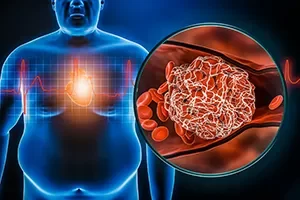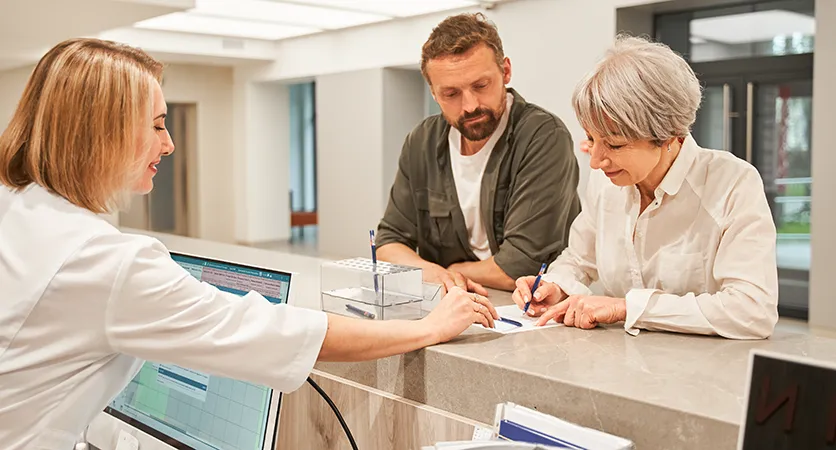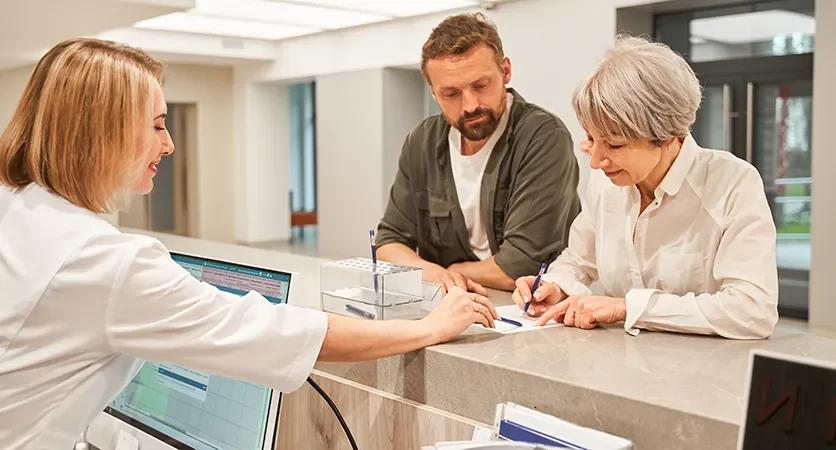Join Our Cardiovascular Clinical Trials
You May Be Compensated Up To $6,000 for Time and Travel
Cardiovascular disease (CVD) is a group of conditions that affect the heart and blood vessels. It’s one of the most common health problems globally. Our cardiovascular clinical research aim to find safe and effective treatments for the most common Cardiovascular Diseases, such as Coronary Heart Disease, Stroke, Peripheral Arterial Disease and Aortic Disease.
682-327-5245


Why Participate In Cardiovascular Trials?
Participating in a cardiovascular clinical trial offers several benefits, including access to study-related medication and care from heart health specialists at no cost. You’ll play a vital role in helping to develop new treatments that could benefit millions of people worldwide. Plus, participants may receive up to $6000 for their time, travel, and expenses.
Current Cardiovascular Clinical Studies Open for Participation
We are currently conducting clinical studies for the following cardiovascular diseases:
How to Get Involved in Cardiovascular Clinical Research
You play a crucial role! We have simplified the steps for your participation in this critical research.

Call Us
Get a No-Cost Health Exam
Undergo a no-cost health examination to ensure the best treatment approach and confirm participation.


Open to All Eligible Participants
No specific requirements like medical insurance or citizenship proof are needed.
You May Be Compensated
Participants may be eligible for up to $6,000 in compensation for their time, travel, and expenses.

Discover The Many Benefits of Cardiovascular Trials

- No-cost health consultations and examinations
- No-cost lab reports
- No-cost study-related medicines
- Adherence to industry safety guidelines
- Oversight by a central ethics committee
- Fair compensation for time and travel
- FDA-regulated and HIPAA-compliant
- Guaranteed confidentiality
Exploring New Horizons in Cardiac Clinical Research
Welcome to our heart health research team! We're a group of experienced medical professionals focused on studying heart diseases. Proudly part of the Alliance Clinical Network, we're known for our successful heart health studies, from Phase II to IV, working closely with top pharmaceutical companies. Our facility is led by expert investigators committed to making strides in medicine, helping our community, and supporting everyone participating in our studies. our cardiac clinical research. Our researchers are skilled

Frequently Asked Questions
1. Are there clinical trials for cardiotoxic medications?
Yes, there are clinical trials that focus on cardiotoxic medications, which are drugs that can damage the heart muscle. These cardiotoxic medication clinical trials help identify safer alternatives or strategies to mitigate the harmful effects of such treatments, particularly in cancer patients who may receive chemotherapy.
2. Can I trust the results of cardiovascular clinical trials?
Cardiovascular clinical trials are conducted following strict ethical guidelines and regulatory standards to ensure the integrity of the research. Results are reviewed and validated through multiple phases of testing, and trials are closely monitored to ensure participant safety. However, outcomes can vary depending on the treatment and patient population.
3. What is the role of cardiology trials in advancing heart disease treatments?
It plays a critical role in understanding the mechanisms of heart disease, testing new therapies, and improving patient care. By participating in research, both patients and healthcare providers help move the field forward, leading to innovative treatments and better outcomes for those with heart conditions.
4. How long do cardiac clinical trials typically last?
The duration varies depending on the study phase and goals. Phase 1 trials may last a few months, while Phase 3 trials can span several years to thoroughly evaluate the treatment’s long-term effects and efficacy.
5. Can healthy individuals participate in cardiac clinical trials?
Yes, healthy individuals may participate in certain trials especially in early-phase studies or trials focusing on prevention, risk factors, or lifestyle interventions. Their participation helps researchers establish baseline data and test new approaches to preventing cardiovascular diseases.
6. How do I prepare for participation in a cardiac clinical trial?
To prepare for participation in cardiology trials:
- Review all information provided about the trial.
- Discuss the trial with your doctor.
- Understand the eligibility requirements and risks.
- Arrange your schedule to attend all required visits.
7. Are clinical trials cardiology only for advanced heart disease patients?
No, it is not limited to advanced heart disease patients. Trials may involve individuals with early-stage heart conditions, those at risk of developing cardiovascular diseases, or even healthy participants in prevention-focused studies.
8. What are some recent breakthroughs from cardiac trials?
Recent breakthroughs include:
- New cholesterol-lowering medications.
- Improved stent technologies for coronary artery disease.
- Advancements in minimally invasive cardiac surgery techniques.
- Gene therapy approaches heart failure.
9. Do cardiovascular trials explore new diagnostic methods?
Yes, many trials focus on advancing diagnostic methods, such as improved imaging technologies, blood tests, or wearable monitors, to detect heart conditions earlier and more accurately.
10. What are the ethical considerations in cardiac trials?
Ethical considerations include obtaining informed consent, ensuring participant safety, maintaining data confidentiality, and adhering to regulatory guidelines. Trials are overseen by ethics boards to uphold these principles.
Science meets care for a healthier future.
Join us in finding new heart disease treatments.
